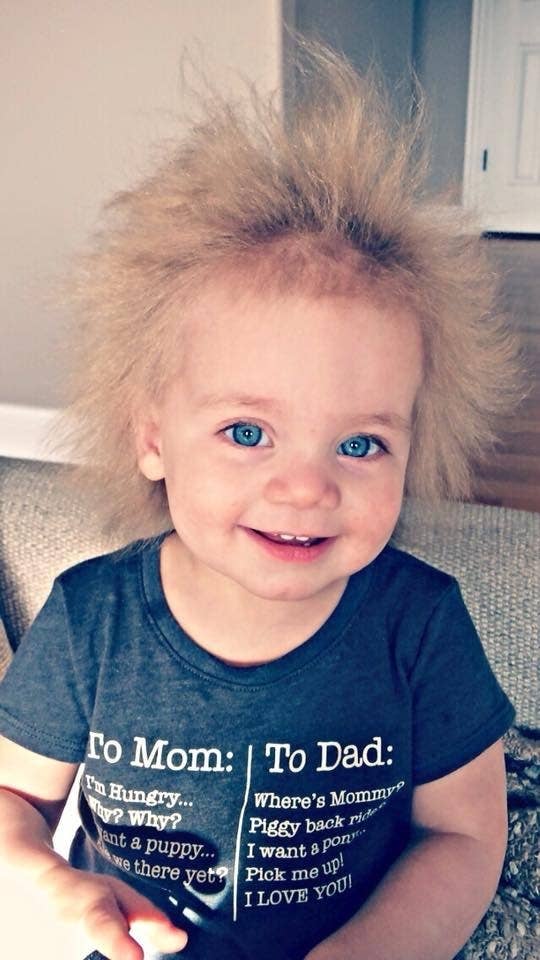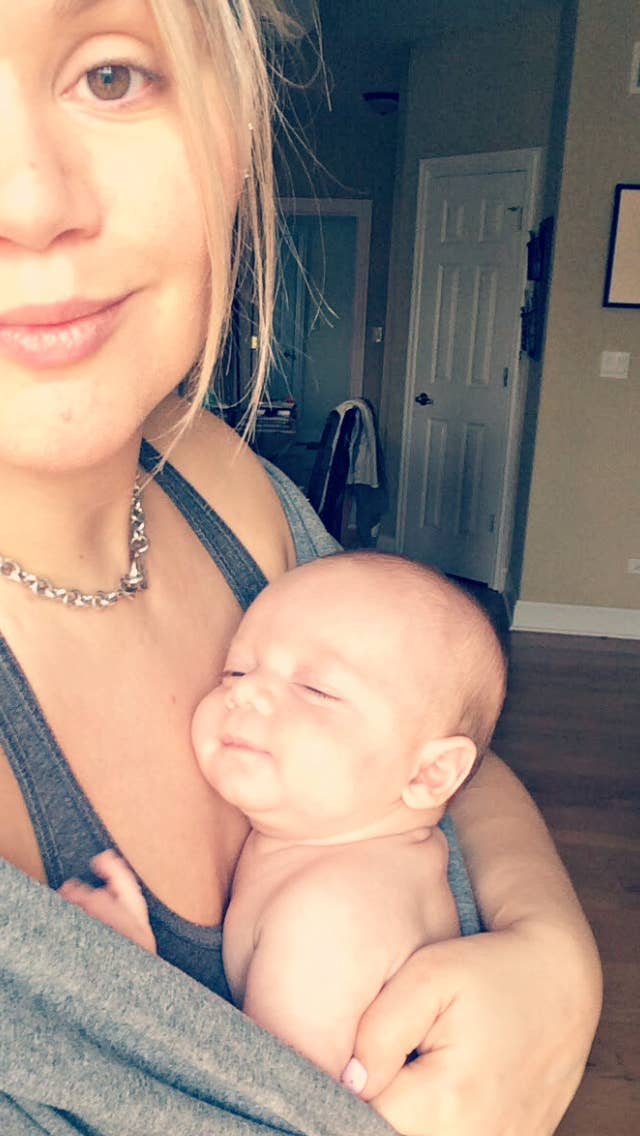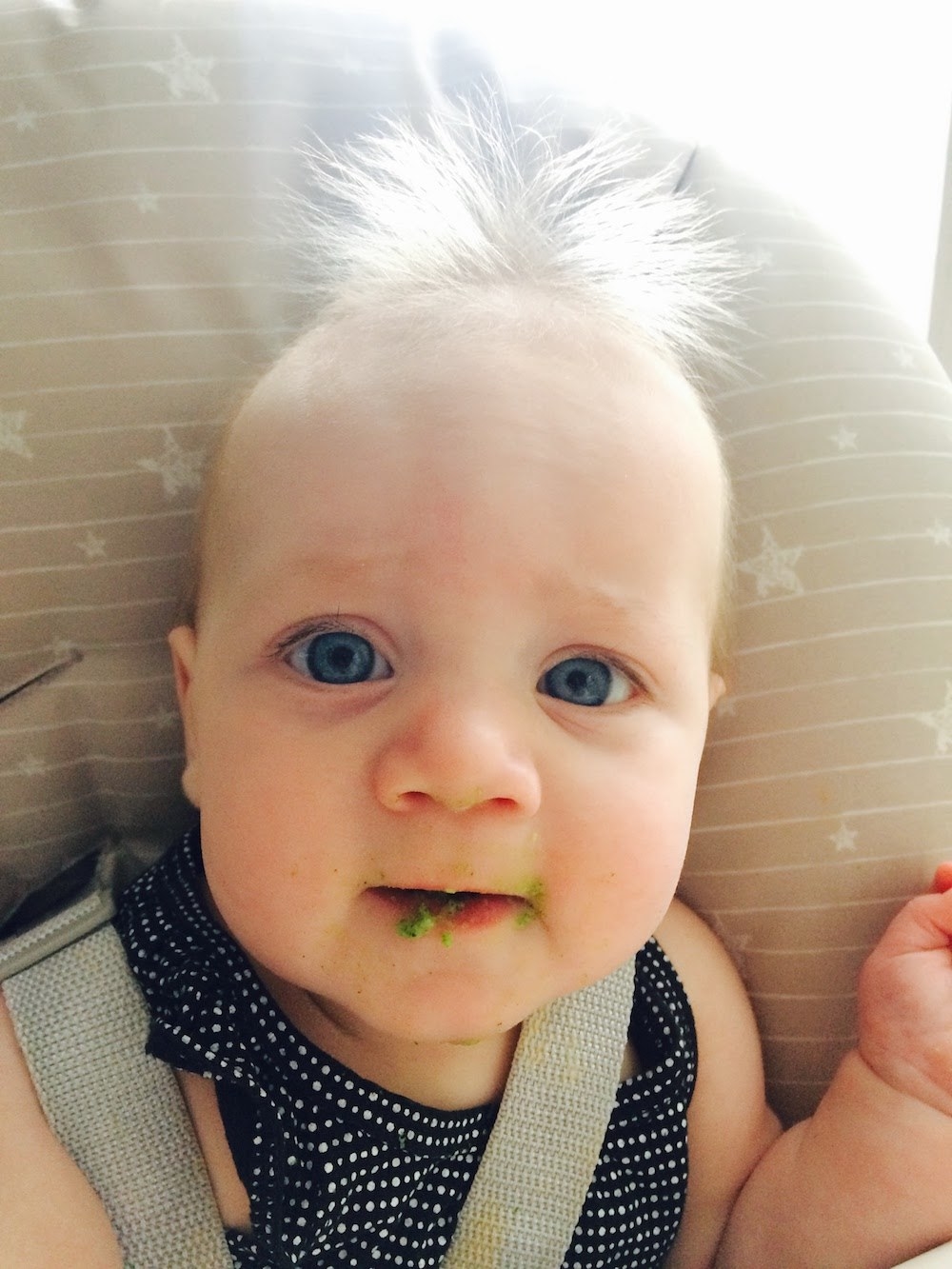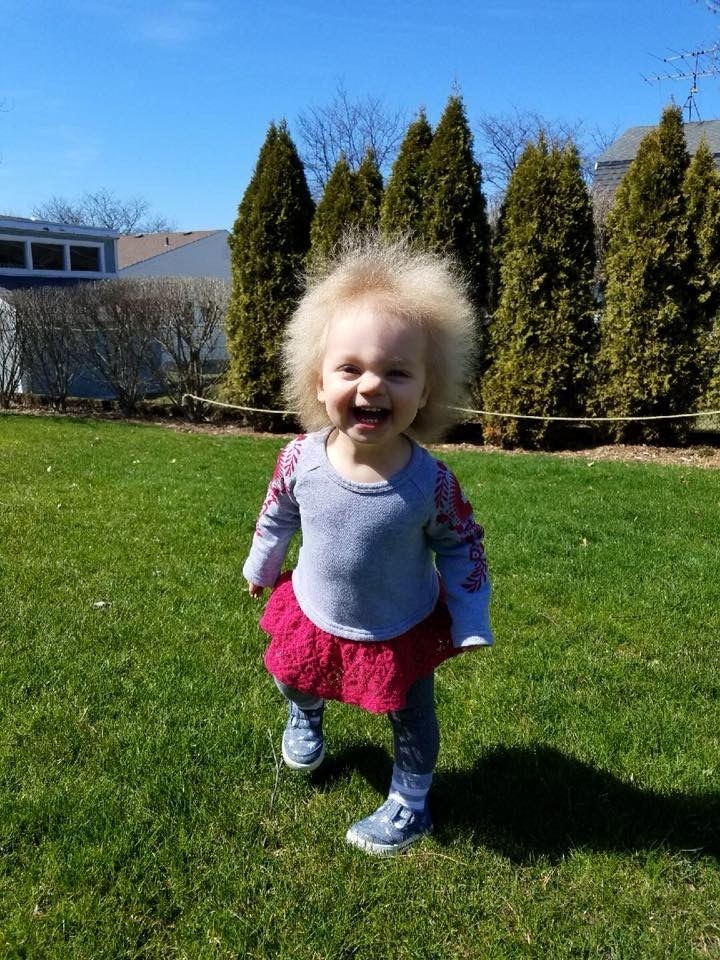Taylor McGowan, 18 months, has uncombable hair syndrome, and that's a real thing.

Taylor has a rare condition called uncombable hair syndrome that's been documented in only about 100 people worldwide, although it may be more common than previously thought.
The condition is the result of inheriting two copies of a gene mutation — one from each parent — that changes the shape of the hair shaft. The result is fine, flyaway hair that often stands up straight all around the head.
"Her hair looks amazing, like she’s a mini Albert Einstein," her mom, Cara McGowan, told BuzzFeed News. "It stands completely on end."
Taylor's hair is hard to style in any way, she said. "It can be placed in a pony tail that will often stick straight up through the top of her head," McGowan said. "We’ve tried dozens of products at this point."
Her hair can also be easily damaged, particularly by ponytail holders and hair products, McGowan said. "We do try very hard to avoid introducing chemicals, as tempting as it may be, to try to tame her mane."
The family first noticed that Taylor's hair was a little different when she was around 4 to 6 months old.

"It was a little unique, it was fuzzy, and we expected that it would eventually fall out," McGowan said, although "that never happened."
A family member saw pictures of children with uncombable hair syndrome and thought Taylor might have it too.
"We essentially laughed it off. We thought there is no way that our child could possibly have this ultra, ultra-rare condition that only affects 100 people worldwide," McGowan said. "And we were completely wrong."
The syndrome is also called spun glass hair syndrome, pili trianguli et canaliculi, or cheveux incoiffables. The genes associated with the condition control the formation of proteins in the hair shaft. Three gene mutations responsible for the condition were described in the American Journal of Human Genetics in 2016.
The McGowans, who live outside Chicago, reached out to the lead author of the study, Regina Betz, a professor of dermatogenetics at the University of Bonn in Germany, to see if Taylor might have one of the gene mutations.
"She is a pioneering scientist who published and discovered the PADI3 gene, which is responsible for causing uncombable hair syndrome when a child inherits two copies of the mutated gene," McGowan said.
The McGowans sent blood samples to Germany to see if Taylor did indeed have the condition, and if her parents were carriers of the gene mutation.

"Most uncombable hair syndrome individuals have mutations in PADI3," Betz told BuzzFeed News in an email.
Taylor does indeed have the PADI3 gene mutation, and both Cara and her husband Tom are carriers of one copy of it. It's a recessive gene, so if you inherit only one copy from a parent — like Cara and Tom did — you will not have uncombable syndrome. Both Cara and Tom have brown hair, which has none of the same characteristics as Taylor's hair.
PADI3 codes for an enzyme called peptidylarginine deiminase 3. The two other genes that can result in the condition are TGM3 (transglutaminase 3), and TCHH (trichohyalin). All three play a role in the formation of the hair shaft.
"They are strongly expressed in the hair follicle and have their function in building the hair shaft," Betz said. In people with the condition, about 50% of the time the hair shaft will be heart-shaped or triangular instead of round, and have grooves along the entire length of the hair shaft.
Betz thinks the condition might be more common than thought. She has blood samples from an additional 70 people with it and thinks there may be thousands who have the syndrome.
People with the condition tend to have silvery, blond, or straw-colored hair that can be dry and frizzy and sometimes grow more slowly than normal. Although they will always have the mutation, sometimes people outgrow the symptoms as they get older, and their hair quality changes over time.
Cara McGowan has connected with other people who have the condition around the world — some have outgrown it, and some have not.
"Maybe it will resolve and maybe it won’t," she said. "I have met both. Individuals who are now adults who appear to grown out of it — their hair has darkened and it no longer stands completely on end but perhaps it gives them a little bit of trouble — and on the other hand I’ve seen adults struggle very much with full, frizzy, hard-to-manage hair."
The McGowans have launched a Facebook page for Taylor called BabyEinstein2.0.

Some people have speculated that Albert Einstein may have actually had uncombable hair syndrome, although the only way to know for sure would be to test his descendants for gene mutations, Betz said. "I never thought about it before. There are no hints," she said. "But I am not sure if we will ever manage to receive this sample," she said, although it "would be interesting."
McGowan is hoping to raise awareness about the condition and encourage more tolerance of people's unique characteristics, she said. Although most people have been supportive, that's not always been the case — some have laughed and pointed at Taylor's hair.
"Our message that we would like to spread is one of accepting diversity, loving oneself, and recognizing bullying and what it looks like and making it stop," she said. "Being different is OK, being different is acceptable, and it should be celebrated."

